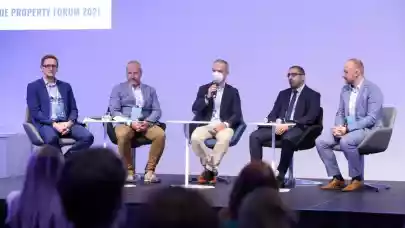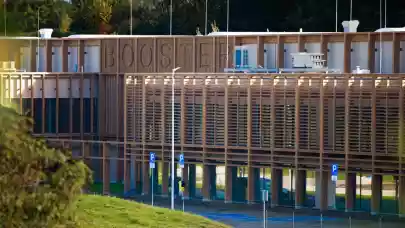
Investment market experts in the Czech Republic are concerned about the potential effects of high inflation and rising interest rates on the market. At the same time, they remain highly optimistic about the future of logistics and keep ESG at the top of their agenda, according to a recent panel discussion at Prague Property Forum 2021, moderated by Jaroslav Kaizr MRICS, Expert Director of the MBARE programme at VŠE.
“Inflation and central banks' reaction to slow it down will be the key driver of markets globally and monetary policy will also definitely have an impact on the domestic market,” highlighted Miroslav Linhart, Partner in Charge, Head of Real Estate Advisory at Deloitte Czech Republic.
“We are seeing that interest rates have been recently hiked in the Czech Republic but we haven't seen interest rates spiked yet or even move in the Eurozone or the US. So the question is, will they increase their interest rates for the first time in 10 years? For the short term, things are looking good. The market is at different speeds, the industrial/logistics and residential markets are doing fantastic. With offices, people are still unsure how people coming back into the workplace is going to pan out in terms of how much space office occupiers will need. In retail, prime assets are probably going to be fine but anything beyond that, investors are reticent about unless the asset is anchored by a food retailer,” added Omar Sattar MRICS, Managing Director Real Estate at Crowdberry.
Commenting on the positive prospects of logistics, Martin Baláž, VP, Country Manager Czech Republic and Slovakia at Prologis explained: “Right after the first shocks of March 2020, we were willing to give discounts to our customers just to make sure that they stay in our warehouses because we were unsure of what will happen. It took us around three months to realize that the market was actually in our favour and that we can start increasing rents and expect occupancy above 90%. Since summer last year, logistics rents, especially in Prague easily increased by 25-30% and we see that this trend is continuing. €6 per sqm per month is still well below similarly sized cities in Europe like Munich where some locations might cost €11 per sqm per month so maybe we are just adjusting to where the market should have been four or five years ago. We shouldn't forget that construction prices went up significantly during last the last six months, by more than 15%, and we might see further increases. Longer-term, whether construction prices will go down or not, I'm not sure, but we'll have to accept that the market has changed completely. There will be new benchmarks in terms of construction prices and rental levels as well.”
“During the last two years, we have accelerated our involvement in the logistics sector. The reason being is that its growth is coming fundamentally from the occupier side and we see a big shift in the perception of global investors. We're particularly active in Poland, where we developed over 600,000 sqm of space in Poland, mostly speculatively, which is surprising given the nature of our capital, but we have plenty of capital willing to access the market and take advantage of the arbitrage of spreads. The business activity of the occupiers is phenomenal, Poland became the most active European market in terms of leased space in H1 2021, overtaking Germany and the Netherlands. So we want to accelerate our growth, we want to find more JV partners. Besides logistics, the other focus for Invesco in Central Europe is residential. But I must say that we're not that satisfied with our results, which is coming from the fact that pricing both in Warsaw and in Prague is just going through the roof,” added Tomas Picha, Senior Director of Transactions in CEE at Invesco Real Estate.
Another key topic of the discussion was ESG. As Omar Sattar highlighted “getting to net-zero by 2050 is quite a difficult thing to do. I think the technology is nowhere near where it needs to be in order to get there. On a positive note, it's quite good that by now everyone has woken up to say we need to do something about it. Companies like CPI, where I serve on the board, have made commitments to cut their greenhouse gases by 30% by 2030. For companies to do that, they need to apply specific methodologies which can then be audited to make sure they're just not greenwashing. With ESG, everyone forgets about the S and the G. There's a social aspect to be considered: how companies interact with their environment, how they treat their staff, how they govern themselves, how they try to achieve equality.”
“We at Prologis are investing a lot of money and a lot of resources in trying to understand the ecological impact of our buildings and the operation of our customers. Recently, we analysed the environmental impact of e-commerce compared to in-store shopping and found that online shopping is approximately 36% less harmful to our environment. And from a transportation point of view, buying online is 50% better for our environment compared to visiting a shopping centre. This was a big surprise for us and it's a good thing considering e-commerce is now really booming and most of our demand growth is coming from that sector,” Martin Baláž.



